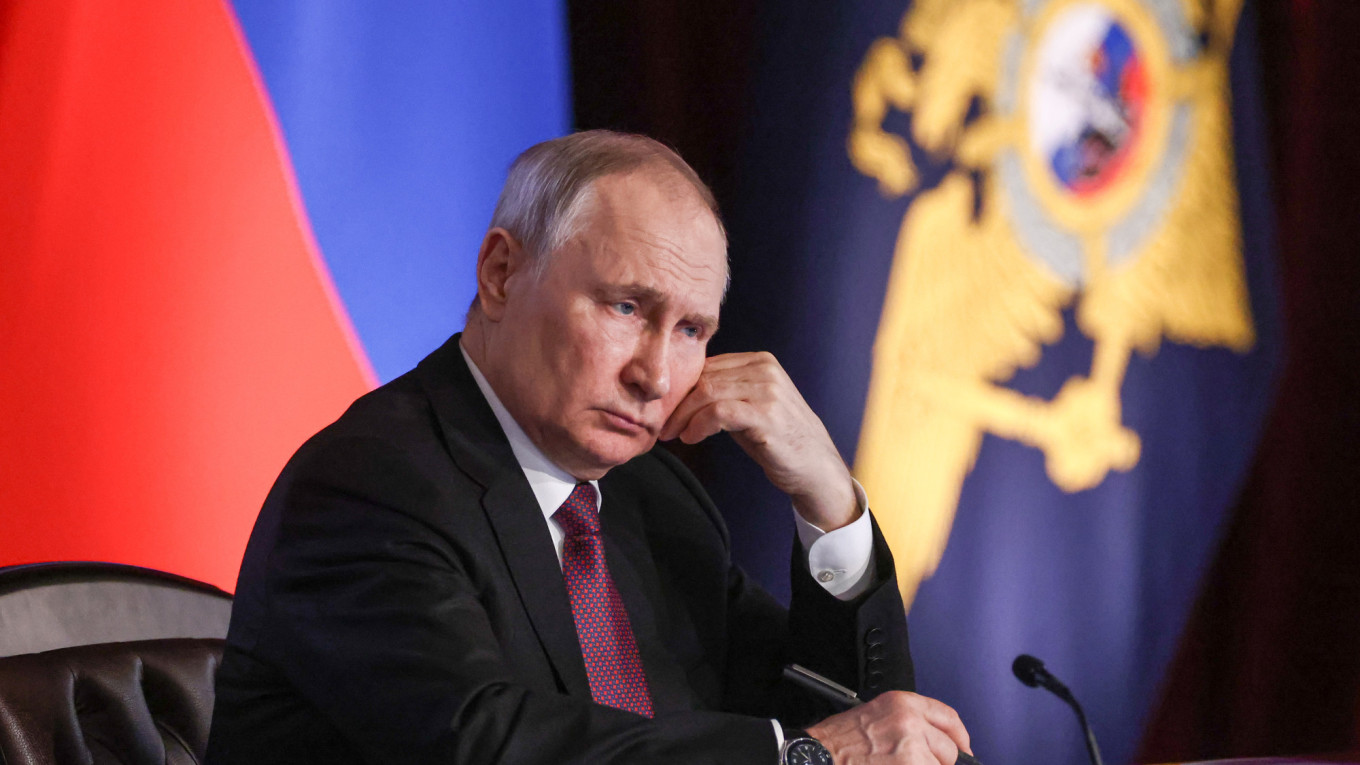Russian President Vladimir Putin said Tuesday that Moscow would be "forced to react" if Britain gives Ukraine military supplies, including armour piercing ammunition which contains depleted uranium.
"The United Kingdom... announced not only the supply of tanks to Ukraine, but also shells with depleted uranium. If this happens, Russia will be forced to react," Putin told reporters after talks at the Kremlin with his Chinese counterpart Xi Jinping.
Putin was reacting to a written response by a UK defence minister, Annabel Goldie, who was asked whether "any of the ammunition currently being supplied to Ukraine contains depleted uranium".
She responded on Monday that "alongside our granting of a squadron of Challenger 2 main battle tanks to Ukraine, we will be providing ammunition including armour piercing rounds which contain depleted uranium.
"Such rounds are highly effective in defeating modern tanks and armoured vehicles."
Depleted uranium is a by-product of the nuclear enriching process used to make nuclear fuel or nuclear weapons. It is around 60% as radioactive as natural uranium.
Its heaviness lends itself for use in armour piercing rounds as it helps them easily penetrate steel.
But the United Nations Environment Program has described it as a "chemically and radiologically toxic heavy metal."
Anti-nuclear organisation CND condemned the decision to send the ammunition, calling it an "additional environmental and health disaster for those living through the conflict" as toxic or radioactive dust can be released on impact.
"CND has repeatedly called for the U.K. government to place an immediate moratorium on the use of depleted uranium weapons and to fund long-term studies into their health and environmental impacts," said CND general secretary Kate Hudson.
The munitions were used in conflicts in the former Yugoslavia and Iraq, and were suspected of being a possible cause of "Gulf War syndrome," a collection of debilitating symptoms suffered by veterans of the 1990-91 war.
Researchers from the UK's University of Portsmouth tested sufferers to examine levels of residual depleted uranium in their bodies and say their 2021 study "conclusively" proved that none of them were exposed to significant amounts of depleted uranium.
A Message from The Moscow Times:
Dear readers,
We are facing unprecedented challenges. Russia's Prosecutor General's Office has designated The Moscow Times as an "undesirable" organization, criminalizing our work and putting our staff at risk of prosecution. This follows our earlier unjust labeling as a "foreign agent."
These actions are direct attempts to silence independent journalism in Russia. The authorities claim our work "discredits the decisions of the Russian leadership." We see things differently: we strive to provide accurate, unbiased reporting on Russia.
We, the journalists of The Moscow Times, refuse to be silenced. But to continue our work, we need your help.
Your support, no matter how small, makes a world of difference. If you can, please support us monthly starting from just $2. It's quick to set up, and every contribution makes a significant impact.
By supporting The Moscow Times, you're defending open, independent journalism in the face of repression. Thank you for standing with us.
Remind me later.






